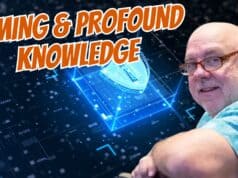Listen

Episode #138 is a discussion with Al Norval from Lean Pathways, talking about his new publication titled:
It's a free six-page document and you can download it here. The manifesto is a fun, upbeat guide to the basics of the Lean methodology and management system, including a brief history of Lean, as well as its foundational concepts, and a discussion of why “just in time” is not the right place to start.
Conflict of interest disclosure: I have a business relationship with Lean Pathways where I sometimes work with their healthcare clients.
For a link to this episode, refer people to www.leanblog.org/138.
For earlier episodes, visit the main Podcast page, which includes information on how to subscribe via RSS or via Apple Podcasts.
If you have feedback on the podcast, or any questions for me or my guests, you can email me at leanpodcast@gmail.com or you can call and leave a voicemail by calling the “Lean Line” at (817) 372-5682 or contact me via Skype id “mgraban”. Please give your location and your first name. Any comments (email or voicemail) might be used in follow ups to the podcast.
About Al Norval (from the Lean Pathways website):
Alistair Norval is a professional engineer who developed his skills at Eastman Kodak Company, where he helped design and implement the Kodak Operating System, based on the principles of the Toyota Production System. In this capacity, he received in-depth personal training with leading international senseis. Following that, Alistair helped guide Celestica International, a provider of Electronic Manufacturing Services, with their lean journey at multiple site value streams in Asia. More recently, Alistair has been guiding clients on their lean transformation while achieving significant business results. His clients include the Medical, Consumer, and Professional Services business sectors.
Alistair has been a manager of manufacturing, product and process engineering, and has helped launch several plants. His experience covers both continuous chemical processes as well as discrete manufacturing. He has applied lean methods in new product development and the supply chain. His passion is to apply lean thinking across the enterprise so as to achieve consistently superior results.
What do you think? Please scroll down (or click) to post a comment. Or please share the post with your thoughts on LinkedIn – and follow me or connect with me there.
Did you like this post? Make sure you don't miss a post or podcast — Subscribe to get notified about posts via email daily or weekly.
Check out my latest book, The Mistakes That Make Us: Cultivating a Culture of Learning and Innovation:









